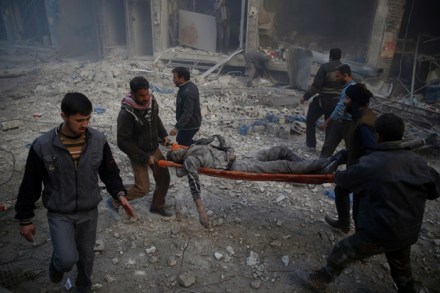Trapped in hell
The mechanic, blinded in one eye by shrapnel, spent three days searching for his family in the destroyed buildings and broken streets of Darayya. Finally he found his father’s body in a farmhouse, alongside those of three boys, already starting to decay. ‘Can you tell me why they would kill an old man?’ he asked, before adding: ‘This is not my Syria. When I see the sorrow that happens in our towns, all I think is — this is not my Syria.’ Yet it is. Indeed, one mystery of the darkness that has descended on Syria is that so many gut-wrenching depravities could befall a place of such bewitching beauty,




















